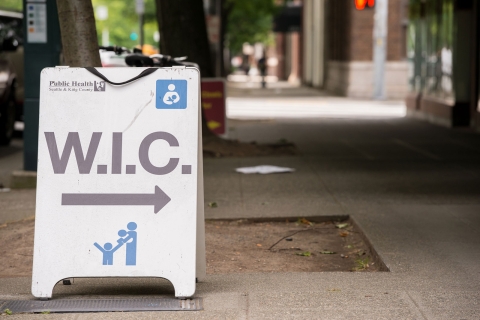USDA extends WIC COVID-19 flexibilities through end of national health emergency
Upcoming Events
Related News

Key Takeaways
Update: On October 1, 2020, Congress enacted the Continuing Appropriations Act, 2021 and Other Extensions Act (PL 116-159). Along with extending government funding through December 11, 2020, the measure extended waivers in the SNAP and WIC program through September 30, 2021 and in Child Nutrition Programs through June 30, 2021. For more information on these waivers, click here.
On September 21, the U.S. Department of Agriculture (USDA) announced an extension of flexibilities to ensure participants in the Special Supplemental Nutrition Program for Women, Infants and Children (WIC) continue receiving the support they need during the COVID-19 pandemic. The flexibilities were slated to expire on September 30, but now allow for the continuation of modified WIC service delivery through curbside pickup programs, telephone, video conferencing or other online platforms until the end of the pandemic. This announcement follows the USDA’s decision in early September to extend child nutrition waivers allowing key flexibilities in the school meals program through the end of December 2020.
Under the Families First Coronavirus Response Act, the USDA was vested with the authority to waive statutory physical presence requirements and other regulatory barriers to access as a result of COVID-19. Since March, every state has obtained a WIC program waiver to modify service delivery. As state and local governments continue to grapple with the economic impacts of the pandemic, WIC and other nutrition services have played a key role in helping families across the country. USDA’s extension of waivers and other flexibilities help to maintain the health and safety of our residents, WIC participants and staff.
Although this is a major win for counties as it offers benefits such as healthy food and nutrition screenings to low-income populations, the USDA did not similarly extend certain important flexibilities in the Supplemental Nutrition Assistance Program (SNAP), which is county-administered in ten states. NACo and the National Association of County Human Service Administrators (NACHSA) released a joint letter in support of The Emergency SNAP Flexibilities Act (H.R. 7794), which would extend useful waivers for county human service agencies during the pandemic.
NACo continues to work with our federal partners to ensure counties and their residents have the flexibilities and waivers they need throughout the COVID-19 national health emergency.
Additional Resources:
- NACo Summary of COVID Relief Packages
- NACo Report: Local government employment in worse situation than previously reported
- NACo/NACHSA Joint Letter on SNAP flexibility extensions

Attachments
Related News

USDA and HHS release new dietary guidelines
On January 7, U.S. Department of Agriculture Secretary Brooke Rollins and U.S. Department of Health and Human Services Secretary Robert F. Kennedy, Jr. unveiled the new Dietary Guidelines for Americans, 2025–2030.

County Countdown – Dec. 15, 2025
Every other week, NACo's County Countdown reviews top federal policy advocacy items with an eye towards counties and the intergovernmental partnership.